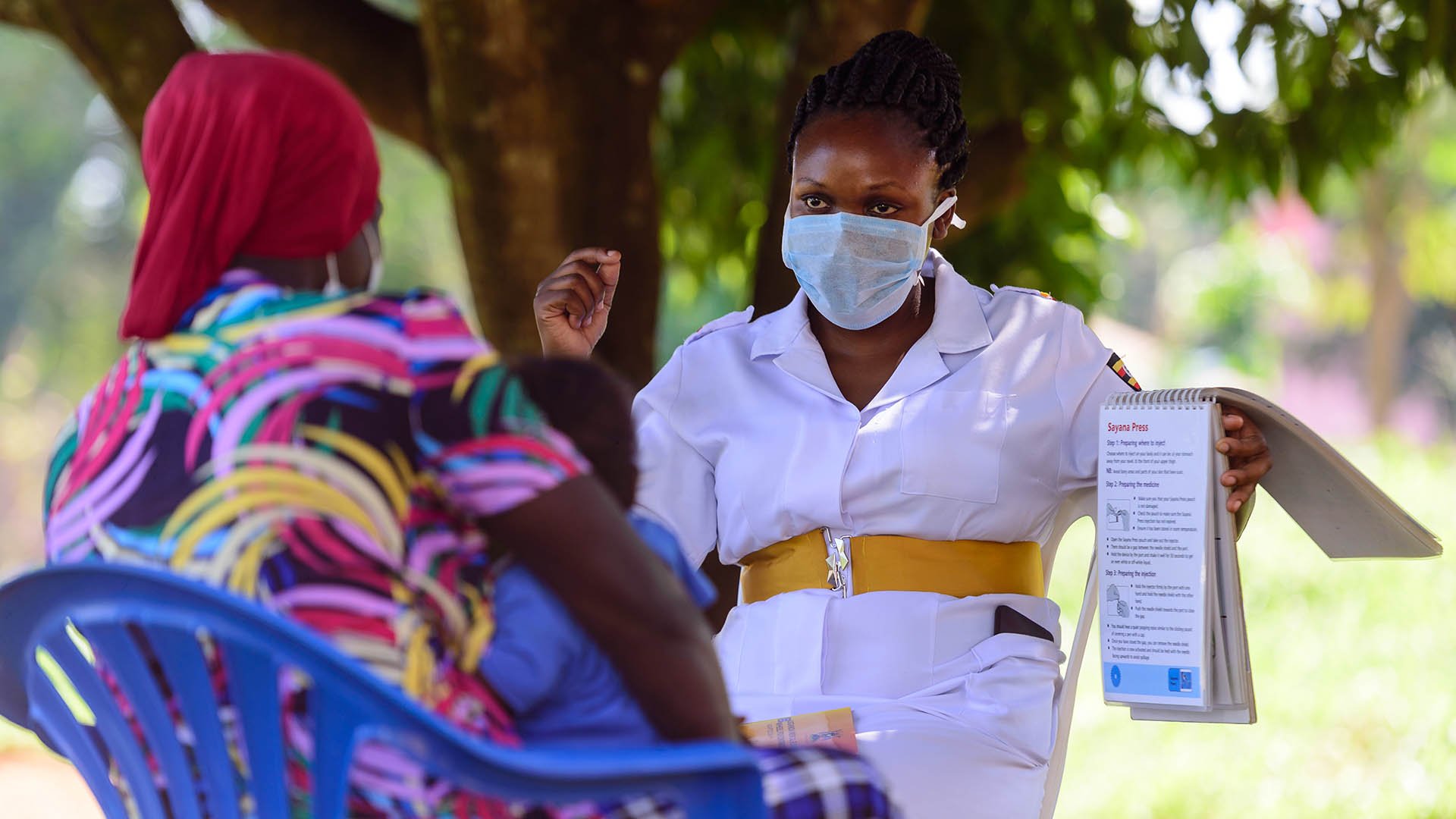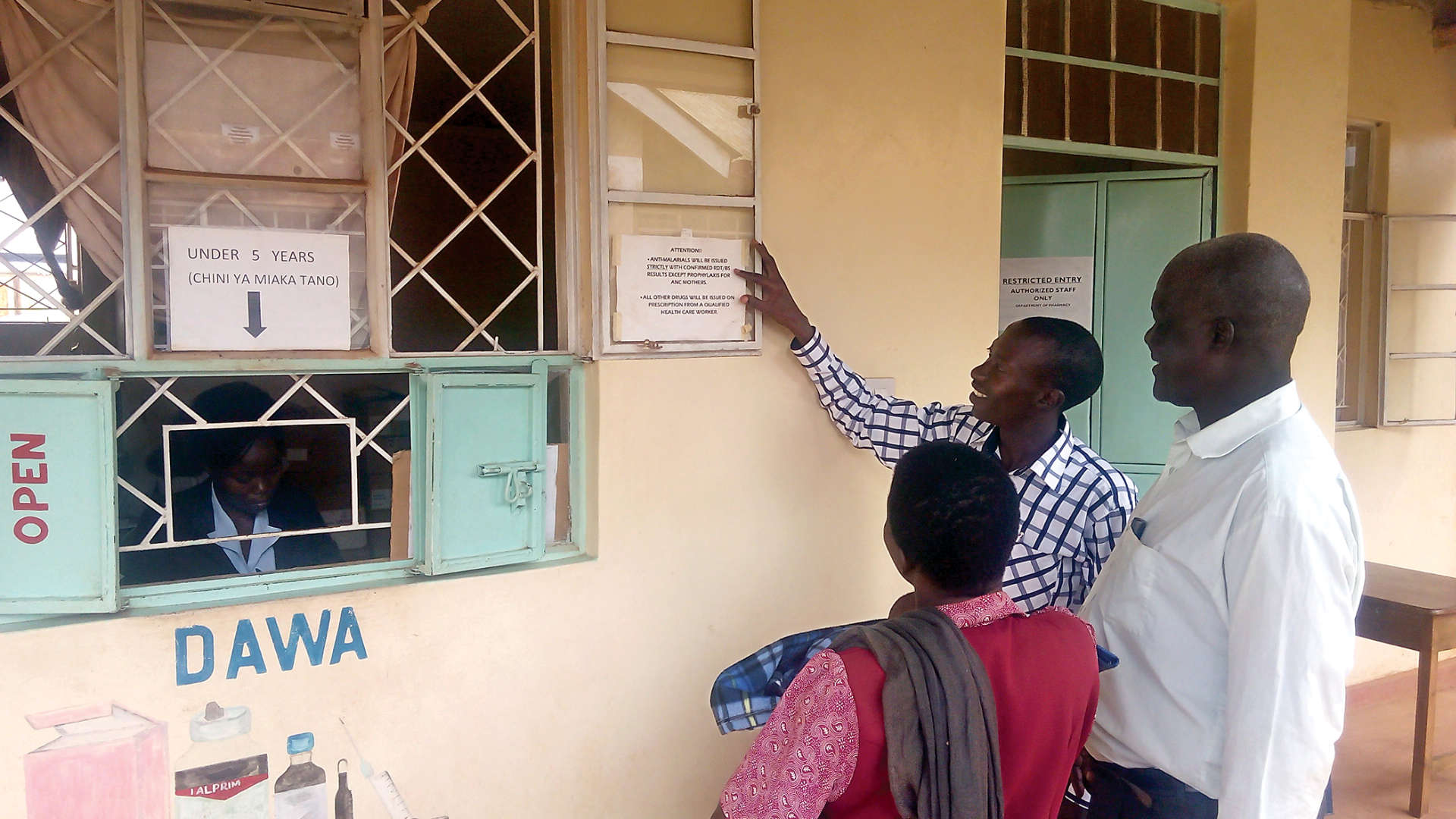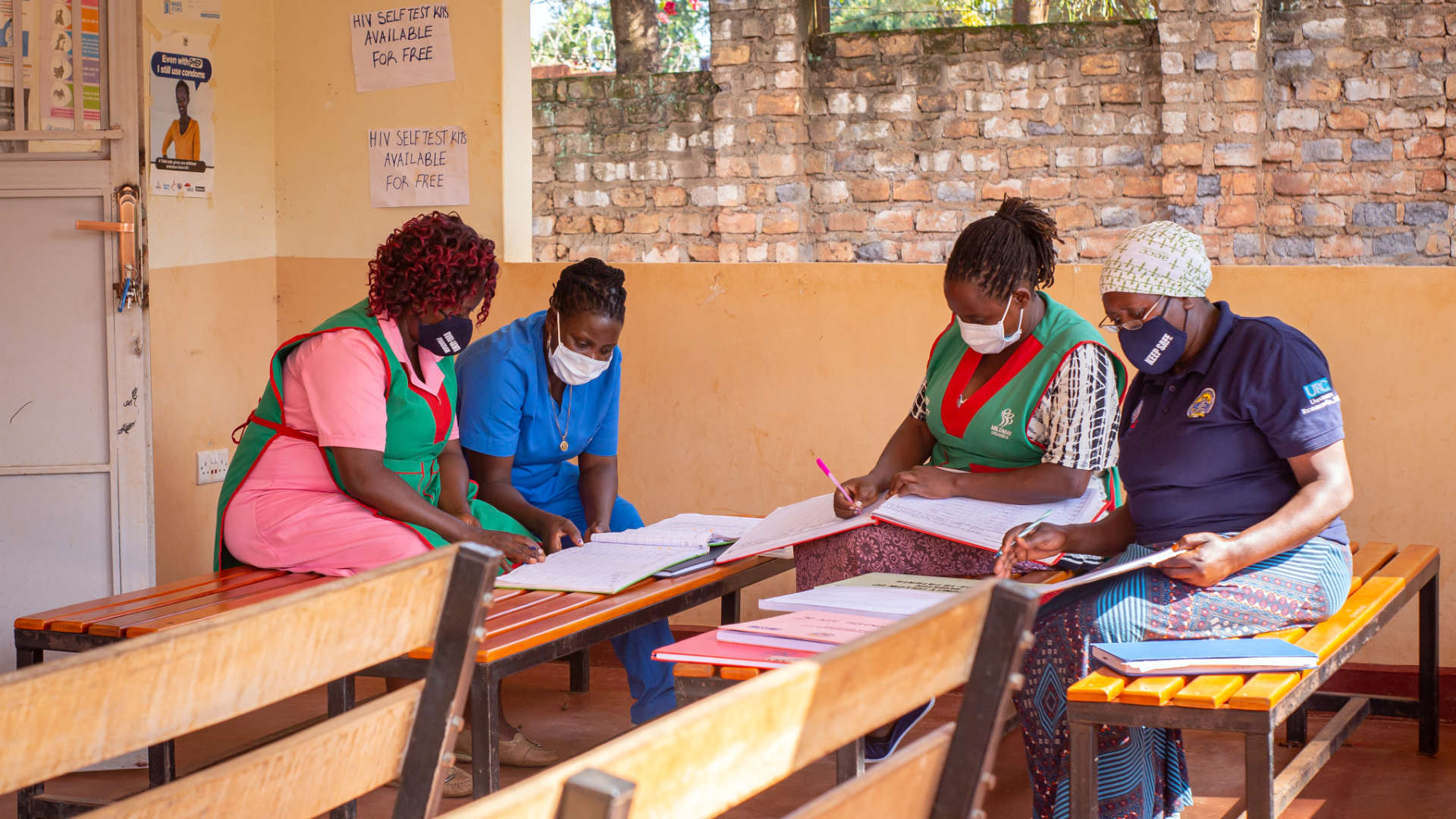Dorothy Mugyeni (not her real name to protect her privacy), 31, is a private school teacher from Jinja District living with HIV. She discovered she was HIV positive in 2014 during her first pregnancy while at an antenatal care visit to Magamaga Health Centre (HC) III. She also learned her unborn baby was at risk for infection.
Following a referral from her midwife, Mugyeni enrolled and received ART for HIV and prevention of mother-to-child HIV transmission during this pregnancy – and the two following pregnancies – from Magamaga HC III. She now has three HIV-negative children.
However, in March 2020, the Government of Uganda closed all schools to curb the spread of COVID-19. Mugyeni and her husband – also a private school teacher – suddenly were unemployed with very limited savings and had to find a new place to live. Their housing was on school property, but the school asked them to leave to cut costs.
“I started to struggle with the ARVs [antiretroviral medicine] following the government lockdown due to the COVID-19 pandemic,” Mugyeni said. “I had no income, but the children had to eat. So, I fed them and took the ARVs only when I had something to eat for myself.”
Addressing the Causes of Viral Non-Suppression
As a result of not taking her ARVs as regularly as prescribed, Mugyeni became virally non-suppressed, putting her at risk of HIV treatment resistance and opportunistic infections.
The HIV clinic team at Magamaga HC III – supported by the USAID Regional Health Integration to Enhance Services in East Central Uganda (RHITES-EC) Activity – identifies all patients in care with non-suppressed viral loads for targeted support. During this process Mugyeni was invited by phone for a clinical review. The clinician and counselor revised her treatment plan and enrolled her on Intensive Adherence Counseling (IAC) sessions. HIV treatment clinics use IAC to provide comprehensive psychosocial support to clients living with HIV who have a non-suppressed viral load. These clients meet one-on-one with a counselor to discuss issues that might be affecting their viral load suppression.
Mugyeni and her husband received a joint counseling session at Magamaga HC III, which helped them better understand each other’s challenges and perspectives. Her husband learned how he could be a better treatment supporter to help his wife keep a suppressed viral load and stay healthy. Mugyeni was reminded about the importance of adequate nutrition prior to taking her ARV drugs. Also, the counselor helped the couple find solutions on how to manage conflict at home. Further still, she was able to get a job cleaning houses, which helped her dire financial situation.
In addition, Mugyeni receives weekly check-in phone calls from the counselor to assess her well-being. She is optimistic she will soon attain viral re-suppression because most of her underlying social and personal challenges have been resolved.
Diligence Leads to More Virally Suppressed Clients
The HIV clinic at Magamaga HC III has adopted some of the best practices the USAID RHITES-EC team has helped scale up across the region, including:
- Labeling files of patients with non-suppressed viral loads to improve tracking;
- Constantly updating the non-suppressed register to ensure all non-suppressed people living with HIV receive timely intensive adherence counseling; and
- Carefully reviewing the documentation of viral load samples and packaging for accuracy.
RHITES-EC also works closely with district medicines management teams and health facility stores personnel in the East Central region to ensure ARV medicines remain in stock.
All the efforts are paying off. Viral suppression rates of the people living with HIV accessing care at Magamaga HC III improved from 90% in October-December 2020 to 94% in July-September 2021. Viral suppression rates also have increased at the 138 facilities in the region, from 90% in October-December 2020 to 92% in July-September 2021.



